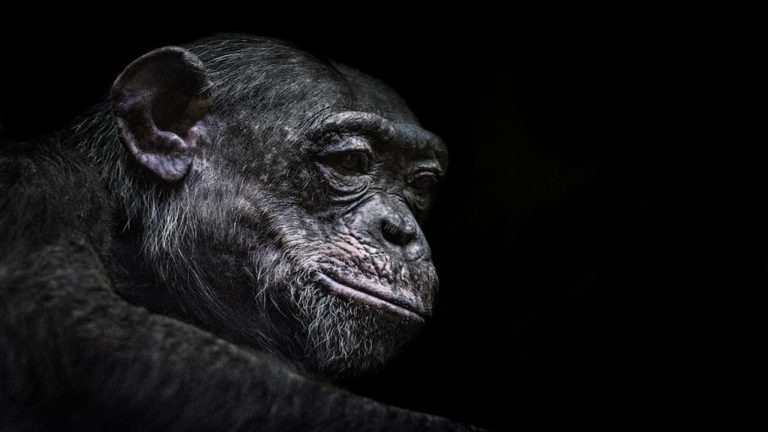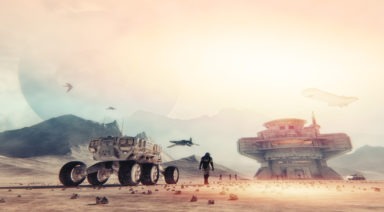Scientists Just Inserted a Human Intelligence Gene Into Monkeys

A team of Chinese scientists recently inserted copies of a human gene believed to be associated with intelligence, into the brains of rhesus monkeys in an attempt to narrow the intellectual evolutionary gap. And according to their results, monkeys who were introduced to MCPH1 showed “remarkable” improvements in short-term memory.
The experiment sparked similar ethical concerns as when a Chinese scientist modified the genes of a human baby late last year, using CRISPR technology to give it HIV immunity.
But despite the dreadful image of an ape with near-human sentience, à la Cornelius from Planet of the Apes, the study arouses some interesting relevance to the ancient astronaut theory that humans may have been seeded by an advanced species from elsewhere in the cosmos.
Unlike the incredibly extensive amount of time it takes for most physical traits to evolve, the human brain’s evolution happened extraordinarily fast. In the span of about two to three million years – a blip on evolutionary timelines – our brains doubled in size, and subsequent intellect. What was the catalyst for such rapid growth? Did someone introduce some gene(s) to our ancient hominid ancestors, like Australopithecus, which turned us into the intelligent Homo sapiens we are today?
The specific gene involved in the Chinese study is known as MCPH1, or microcephalin, which can lead to babies with small heads if damaged in humans. In addition to improved memory, scientists noticed the monkeys’ born with the MCPH1 gene took longer for their brains to develop, much like the extensive time it takes human brains to fully develop, though there wasn’t a noticeable increase in the monkeys’ brain size.
Scientists introduced between two and nine copies of MCPH1 into a group of monkey embryos, raised them, and then gave them memory tests.
But after the negative backlash from the international community of biologists it’s unlikely Bing Su, the leading geneticist involved in the study, will continue these experiments much further.
Though with China’s lax ethical standards when it comes to this type of bioengineering, it’s tough to say for sure.

“Although their genome is close to ours, there are also tens of millions of differences,” Bing Su told the MIT Tech Review. “Impossible (that the monkeys would become something other than a monkey) by introducing only a few human genes.”
It doesn’t seem too far off that messing around with a few more genes or introducing enough of a specific gene from another species might tilt the scales in the direction of some chimeric creature. Scientists have already experimented with the creation of chimeras – just ask Alex Jones. Of course, they didn’t allow them to develop past fetal stages, or so they claim.
And China certainly isn’t the only country experimenting with human brain cells in animals, as U.S. scientists have done the same with mini-brain organoids implanted in mice. They say these may be developed as mini cortex repair kits for humans someday to treat conditions like Alzheimer’s.
But is it even possible to bestow human intelligence on a less developed ancestral species, and if one allowed these species to continue to evolve over millions of years, would this subtle intervention eventually lead to a more advanced version of that species? If so, would this prove that our intelligence may have been seeded from a more advanced biological ancestor of our own?
For that we’ll have to defer to Erich von Däniken and this episode of Beyond the Legend:
This Autonomous Robot Can End Mass Spraying of Herbicide on Crops

While some worry of the impending threat robots may have on humanity, some good news concerning artificial intelligence is here, and it may be the undoing of large agrochemical manufacturers. Soon a particular type of robot may become commonplace on farms, scouring crops for weeds and eliminating the need to spray large amounts of toxic herbicide on our food.
The Swiss startup, ecoRobotix, has developed a solar-powered, autonomous robot that combs through fields, detecting where weeds are growing, before directly delivering a micro-dose of herbicide to their roots. The bot can run on its own for 12 hours without emitting pollution and is easily transportable.
Current farming practices rely on universal herbicides, such as Monsanto’s Roundup and its genetically modified crops capable of withstanding Roundup. But these herbicides and GMOs have been proven to be highly toxic, despite their rampant use.




































